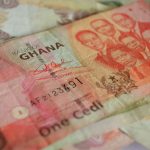Uber operates with OkHi Kenyan startup which is an image based app. It is scheduled for launch later this month in Nairobi. Last month, the app established relatively lower price initiative known as Chap Chap services. It is also postulated that Uber will launch a new product in Tanzania. The name of the new product is Poa service to improve the three-wheel (tuk-tuk) market. In the recent years, Uber has continued to add new products in Africa continent. Besides Kenya and Tanzania, it also operates in South Africa, Ghana, Uganda, Nigeria, and Egypt. The company has integrated some services in Africa which are not available in other continents such as money payment.
According to Alon Lits, the Uber General Manager, the company is here to stay in Africa despite quitting rumors. The speculation was at the peak last year following the Softbank advisement. The bank had advised the company to focus on markets in Europe, Latin America and U.S. Lits added that the company is successful in Sub Saharan Africa with improved business growth in the continent. He also responded back on Softbank which had been spreading the rumor that uber is “a global company”.
Konga was founded in 2012 by Harvard MBA student Sim Sahagaya and an entrepreneur from Nigeria. The company had accumulated $108 million funding from Kinnevik and Naspers. In past, Konga had to experience stiff competition with Jumia Company for increasing African online business. Zinox Technologies which is computer hardware acquired part of Naspers e-commerce in February this year. The media did not disclose the payment for acquisition but acknowledged the merge of the two companies.
The move had impacted adversely for backers due to acquisition distress. The longtime VC attrition battle had created suspicion among the rivals on which company will gain large share in e-commerce market in Africa. Notorious challenges facing the continent comprise of the limited internet, poor infrastructure, limited online payment and low device penetration. Jumia won a $326 million funding prize in 2016 pushing to a $1billion market value and the first unicorn in Africa. Konga benefited from its own innovations such as the launching of grocery services and payment mechanisms.
In 2016 Alexa popularity rating in Nigeria, Konga dropped to position six while Jumia was ranked position six. Last year, Konga deployed about 60% of its staffs and cancellation of warehouse merchant services. Valuation of the company has been put in the public domain from $300 to $35 million. Zinox Company had decline acquisition process of $10 terming it to be very high. Konga company still experience financial challenges and needed additional investors to contribute $350 million to enable the company meets 30% IRR. Both Zinox and Nasper had no capacity to raise the estimated acquisition amount. Negotiations are underway to convert Konga into Zinox Company in the near future.
Africa startups should use the case study of Konga to utilize Africa-e-commerce opportunities to real life business model.



